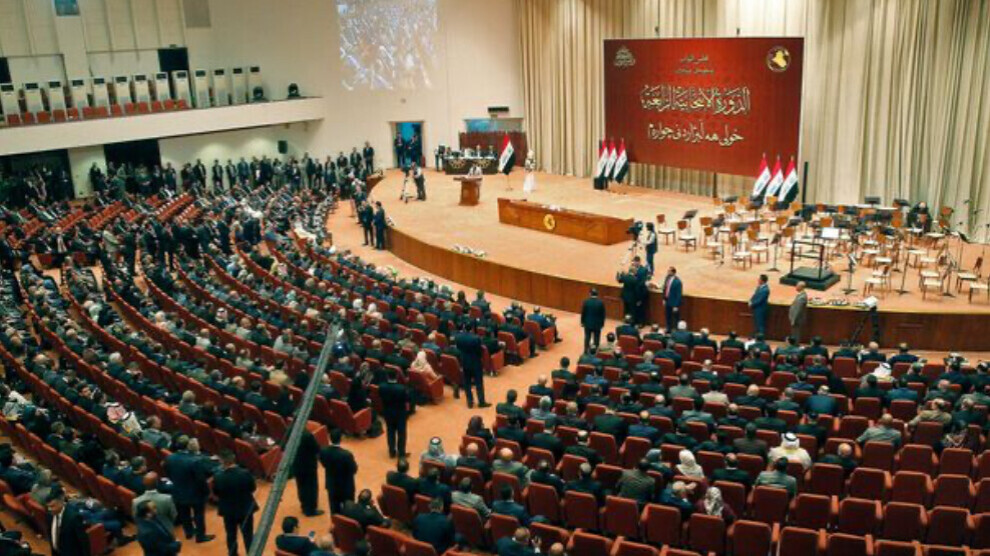Political impasse in Iraq: Sadr urges his lawmakers to resign
There has been no government in Iraq since October’s general election. Prominent Shiite leader Moqtada Sadr has called on his 73 lawmakers to “prepare their resignation letters.”
There has been no government in Iraq since October’s general election. Prominent Shiite leader Moqtada Sadr has called on his 73 lawmakers to “prepare their resignation letters.”

Political factions in Iraq have failed to forge a majority for a new government since the general elections in October 2021. The biggest winner of the elections was the Sadr movement with 73 deputies.
However, the rival Shiite Coordination Framework also wants to designate the prime minister.
Allied with Sunni forces and the Kurdistan Democratic Party (KDP), Sadr seeks to remove the tradition of role-sharing in the government that has existed since the fall of Saddam Hussein in 2003.
The Sadrist group has sought to form a "majority government" that leaves the Coordination Framework in opposition. However, it has failed to do so.
The Shiite cleric has called on his lawmakers to “prepare their resignation letters” for the establishment of a new government. Thus, he paved the way for the Coordination Framework to form a government.
“If the survival of the Sadrist bloc is an obstacle to the formation of the government, then all the representatives of the bloc are ready to resign from parliament,” Sadr said in a televised speech.
Sadr has called on his lawmakers to “write their resignation.”
The Shiite cleric said that his lawmakers “will not disobey him”, adding that "Iraq needs a government supported by a majority that serves the people.
The majority government that Sadr speaks of includes his own movement, Sunni lawmakers from the party of parliamentary speaker Mohammad Halbusi and the KDP. These three groups constitute the majority with 155 deputies in the 329-member parliament.
The rival Coordination Framework draws lawmakers from the Fatah Alliance, the political arm of the Shiite-led former paramilitary group Hashd Al-Shaabi. This coalition has 83 lawmakers.
Iraqi lawmakers have already failed three times to elect a new president since the beginning of the year due to the failure to form an absolute majority in the parliament and the lack of consensus. According to Iraqi laws, the first step is to elect a president to name a prime minister and form the government.
All deadlines set by the Constitution have expired. Dissolution of the parliament and re-elections are considered possible moves to get out of this political impasse. In order to do so, the parliament must be dissolved by the lawmakers themselves.